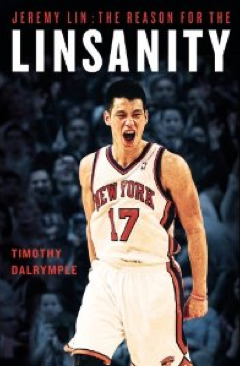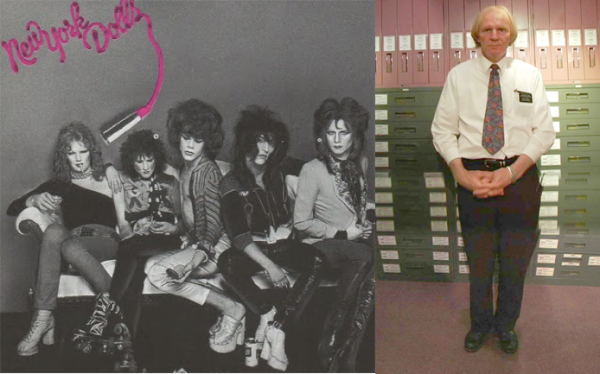Let’s start from the beginning: Jeremy Lin is an Asian-American, Harvard-educated basketball player who became a New York Knicks phenomenon. The combination of his skill, his ethnicity, his Christian faith, and the improbability of his rise took the sports world by storm. Innumerable puns on his name, some ethnic slurs about Asian stereotypes, and a spate of books inevitably followed.
One of these books, Jeremy Lin: The Reason for the Linsanity, has already hit shelves after its author Timothy Dalrymple churned it out in an amazing three weeks. The beautifully written book tells the story of the unlikely sports hero who captured the hearts and imaginations of Americans everywhere. Dalrymple chronicles how Lin was recruited in 2005 by then–Harvard assistant coach Bill Holden who noted that Lin was 6 feet 3 (perfect for a ball player) and had a 4.2 high school GPA (ideal for a Harvard student). Though he wasn’t amazing physically, he was impressive spiritually and academically. The coach figured that he wasn’t going to be a star, but also that would make the team better. That’s how Lin became the “David” of this David versus Goliath story, even though he was 6’3”.
Dalrymple presents the against-all-odds story well. He himself was an elite athlete: a gymnast who broke his neck before the Olympic Trials of 1996. Because of his past experience, he understands competition as well as the pressures, joys, and opportunities of sport. In addition, the author is Ivy League–educated (Stanford, Princeton Theological Seminary, Harvard’s Graduate School of Arts and Sciences) which gives him a special insight into Lin’s educational background.
But the book isn’t a rote retelling of Lin’s life and history. Written in an accessible, engaging style, the book provides the behind-the-scenes stories that are even more inspiring than the pun-heavy headlines suggested. For example, Dalrymple reveals that Lin had to ask friends to pray that he wouldn’t be cut from the team. He had to beg coaches to give him a chance, and — at one point — he had to convince the guards at Madison Square Garden that he wasn’t the physical therapist. Dalrymple does a great job explaining how this same guy became so popular that a Manhattan lawyer’s wife bid $40,000 for his jersey and the chance to meet him. In fact, his was mentioned on Twitter 5 million times after a certain game against the New Jersey Nets.
But even though the author wrote this book in less than a month, it still wasn’t fast enough to make it to the market before Lin was sidelined with injuries. How does this recent turn of events affect the story? Did Dalrymple chronicle a fantastic life of an amazing man, only to have a bad ending?
Not at all.
Jeremy Lin: The Reason for the Linsanity underlines the sovereignty of God in every chapter of Lin’s amazing journey so far. The story has had ups, downs, and zig-zigs that could make most people lose heart. But not Lin.
After a game in which he got favorable but reserved reviews, Lin tweeted to his 26,000 followers: “God is good in our ups and downs!” This book — and Lin’s life — underline the hope, the steadfastness, the hard work, and the good humor of a man who’s ultimately surrendered his career and fate to God. Even the fact that he now has almost three quarters of a million followers seems like a small part of God’s plan for his life.
And that’s what makes Lin’s story so poignant. His life — like ours — is not perfect, but it is still being written by the author of life. This book is an excellent primer for those of us who will be watching with hope and expectation as it plays out on courts across America.
This book would be a great one to use for a discussion over dinner with your teens. Here are some conversation catalysts:
1. Why do we have a national obsession with “underdogs” in sports?
2. In what contexts would Lin be considered an underdog and in what contexts would he definitely not be considered an underdog?
3. Why did Lin consider his basketball career a miracle even before he became a sensation, and in what ways does God orchestrate our lives and careers?
4. How did Jeremy’s ethnicity inhibit his career?
5. How did his ethnicity make him a better ball player?
6. Is having a “chip on your shoulder” sometimes a good thing when it drives you to work harder?
7. Is “ethnic pride” good? When could it be negative?
8. What did the ear-piercing incident suggest to you about Lin’s sense of adventure and his respect for his mom?
9. How did Lin deal with his sudden fame and how do you think you’d deal with it?
10. Would sudden fame be easier to deal with than a disappointing injury? How do his injuries change the story for you as a reader?
Full disclosure: I work with Dalrymple at Patheos.com where he’s the director of content and I’m the editor of the Faith and Family channel. This article first appeared here on National Review.
We’re giving away a copy of this book this week! Please leave a comment below for your chance to win!
On July 20 at noon (EST), we’ll pick a name in a random drawing from all eligible entries received and send you an email notification if you are the winner!
Limit one (1) entry per person; NO PURCHASE NECESSARY TO ENTER OR WIN. Open only to legal residents of the 50 United States and Washington D.C. who are 18 or older as of date of entry.










